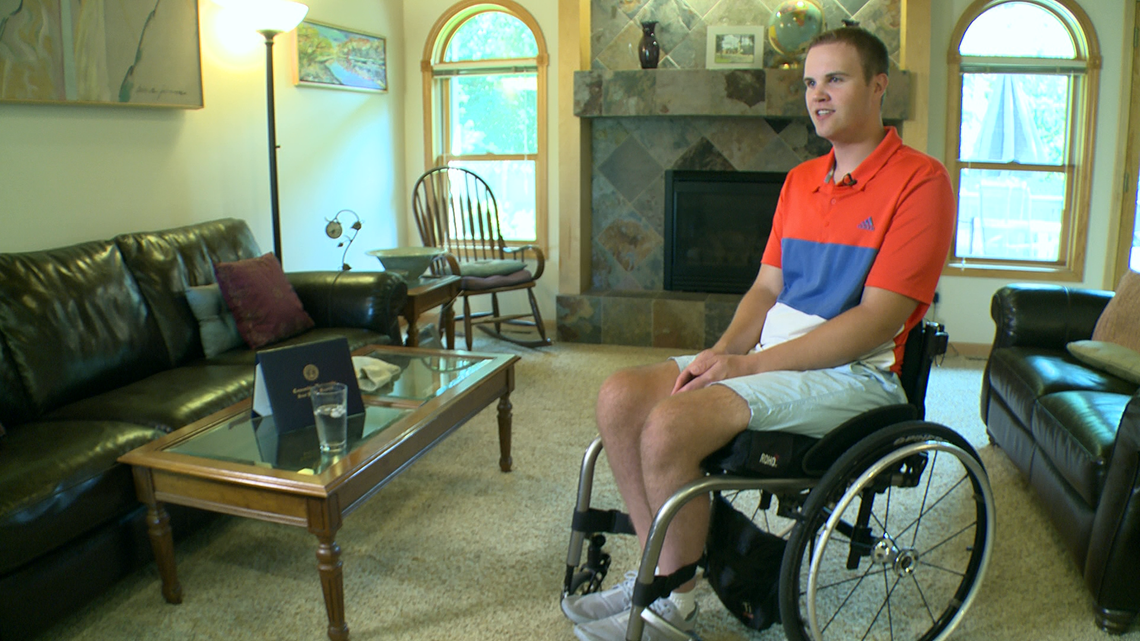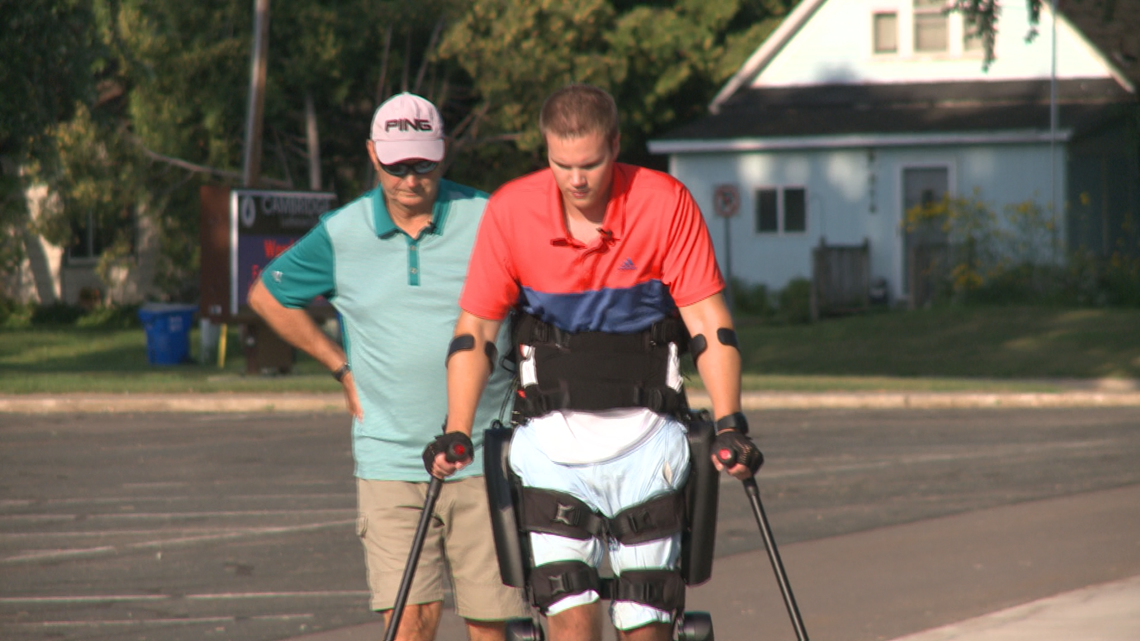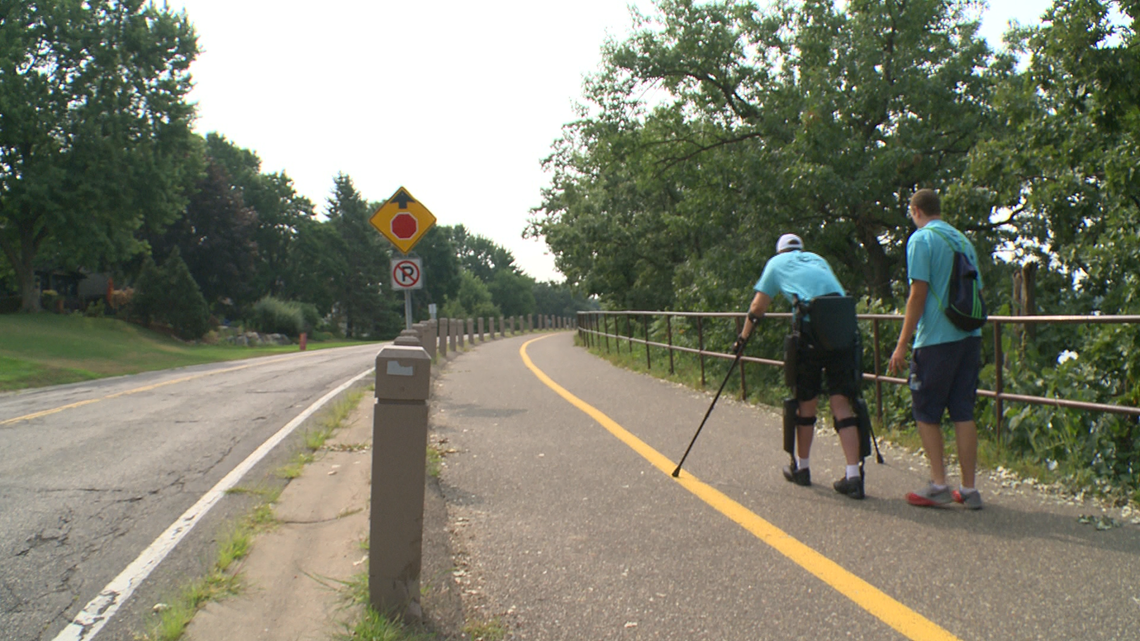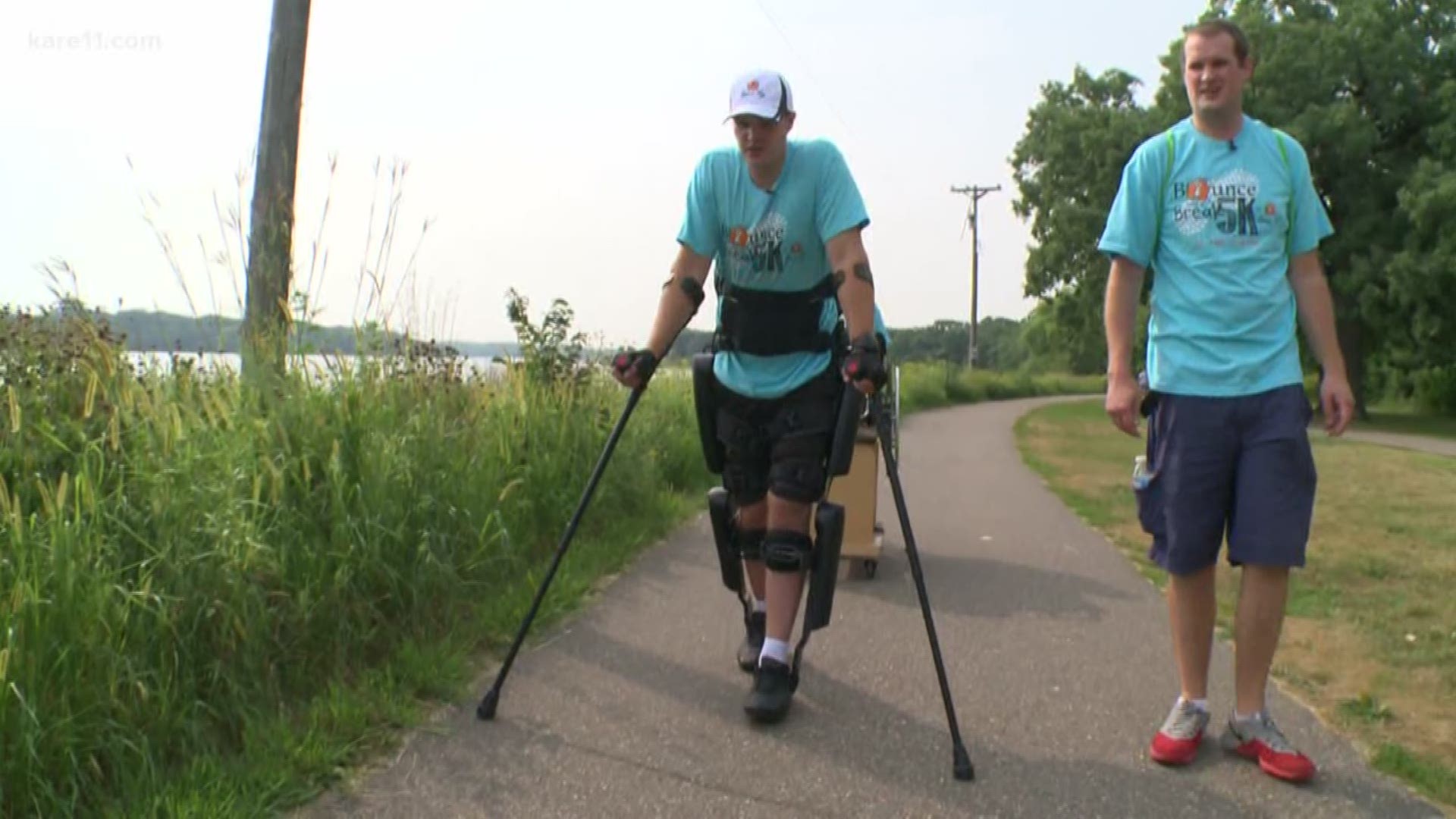CAMBRIDGE, Minn. -- Outside a church parking lot in Cambridge, Jackson Larson transfers from his wheelchair into a device that will allow him to walk again.
"If someone says you can't do something, then... it gives me that much more motivation to try and go for it," Larson said.
It's a determination that's only grown since 2010, when everything shifted.
"I was driving a 1970s Chevy Nova and I had put my car into park and then I went around and opened the side passenger door and it all of a sudden started doing donuts in reverse," Larson recalled. "So then I got closer to the vehicle and I tried to jump in to stop it and that didn't work out."


At 16 years old, Larson suffered a spinal cord injury and became paralyzed from the waist down. From Hennepin County Medical Center, he was transferred to Gillette Children's Specialty Healthcare where he spent the next six weeks.
"I learned how to put on socks. Things that you wouldn't really think of. Simple things but they're not so simple at the beginning," Larson said.
He recalled the staff at Gillette helping him, saying, "At first they would push me in my wheelchair all the way across to where the therapy was and then eventually one day I was like, 'Oh, are you guys going to push me?' And they're like, 'Oh no, you're ready to push.'"
A push that years later got him out of his wheelchair and into a ReWalk—a wearable robotic exoskeleton. It provides powered hip and knee motion that allows someone with a spinal cord injury the ability to be upright, walk and turn. In 2014, ReWalk became the first FDA-approved robotic exoskeleton.
"They did a kind of screening-type thing to see if I would qualify—because there are certain requirements to use the exoskeleton—and I was like the perfect candidate because I did a good job with keeping myself in shape with sports and everything and I kept a good range of motion," Larson said.
In 2016, Larson became the first person in Minnesota to be approved by an insurance company for a ReWalk to use at home and in his community. According to ReWalk, without insurance the technology costs $118,000, which includes a five-year warranty. ReWalk has placed more than 450 units to rehab centers and personal device owners in multiple countries.
Larson spent months training on the device at Gillette Children's Specialty Healthcare. His very own ReWalk arrived at Gillette in May 2016.
"It has its physical benefits but it also has its emotional benefits of being upright and moving around," Larson said.
Now 24 years old, Larson uses his ReWalk to walk in his community of Cambridge. He also likes using it at the Mall of America.
"One time I went up the elevator with my brother, we came walking out, there was a mother with her daughter and her daughter was in a wheelchair... the mom looked up at me and my brother and said, 'There's hope.' So that was really special to hear," Larson said.
Larson is always moving. Through the Courage Kenny Rehabilitation Institute, he plays for the Rolling Timberwolves and the Rolling Twins. He also makes YouTube videos showing others what's possible after a spinal cord injury.
In May, he graduated from Concordia University, St. Paul with a bachelor's in psychology.
By then, Larson had another goal he wanted to check off his bucket list: Walk a 5K.


"I like challenges and I like to overcome them," Larson said, who spent the summer training in his exoskeleton.
On the morning of Aug. 19, Larson showed up at Phalen Regional Park in St. Paul with his mom, dad and brother.
"It's exciting seeing his progress," said his dad, Richard "Fizz" Larson.
Jackson chose to walk in Spare Key's Bounce and Not Break 5K. The nonprofit provides housing grants to families who have a critically ill or seriously injured family member in the hospital.
"They ended up paying my family's house mortgage and because of that I was able to spend more time with my family and my family was able to focus more on my health and recovery rather than, 'Oh, I need to pay this bill.' So that was a huge thing for my family," Larson recalled.
Larson is now an intern at Spare Key, serving as the director of outreach and advocacy.
"I just think it's wonderful that he keeps forging ahead," said Mary Norton-Larson, Jackson's mom.


His brother, Bennett Larson, served as his spotter—walking behind him during the 5K. His mother pushed a cart that held his wheelchair.
While in his ReWalk during the 5K, Larson said, "It almost gives me this euphoric feeling... and I get to see people at eye level, too, which means a lot."
Larson was prepared to transfer out of his ReWalk, knowing ahead of time that the course included hills. He made it up a couple slopes but about an hour and fifteen minutes into walking, he finally reached a steep hill. He transferred out of his ReWalk and wheeled about half the course.
Larson referred to the Martin Luther King, Jr., quote that says, "If you can't fly, then run. If you can't run, then walk. If you can't walk, then crawl. But whatever you do, you have to keep moving forward."
He transferred back into his exoskeleton to cross the 5K finish line.
"It just feels good," he said.

